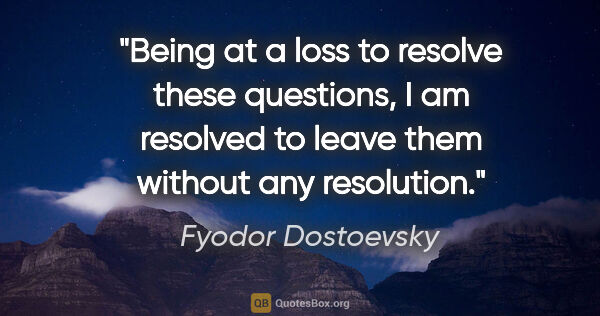Losses Quotes (page 22)

I was at a loss suddenly; but conscious all the while of how Armand listened; that he listened in the way that we dream of others listening, his face seeming to reflect on every thing said. He did not start forward to seize on my slightest pause, to assert an understanding of something before the thought was finished, or to argue with a swift, irresistible impulse -- the things which often make dialogue impossible. And after a long interval he said, 'I want you. I want you more than anything...
Anne Rice
I am made to think, not for the first time, that in my writing I have plunged ahead-head-on, heedlessly one might say-or 'fearlessly'- into my own future: this time of utter raw anguished loss. Though I may have had, since adolescence, a kind of intellectual/literary precocity, I had not experienced much; nor would I experience much until I was well into middle age-the illnesses and deaths of my parents, this unexpected death of my husband. We play at paste till qualified for pearl says...
Joyce Carol Oates
Good and evil both increase at compound interest. That is why the little decisions you and I make every day are of such infinite importance. The smallest good act today is the capture of a strategic point from which, a few months later, you may be able to go on to victories you never dreamed of. An apparently trivial indulgence in lust or anger today is the loss of a ridge or railway line or bridgehead from which the enemy may launch an attack otherwise impossible.
C. S. Lewis
Fame is also won at the expense of others. Even the well-deserved honors of the scientist or man of learning are unfair to many persons of equal achievements who get none. When one man gets a place in the sun, the others are put in a denser shade. From the point of view of the whole group there's no gain whatsoever, and perhaps a loss.
B. F. Skinner
The evils arising from the loss of her uncle were neither trifling nor likely to lessen; and when thought had been freely indulged, in contrasting the past and the present, the employment of mind and dissipation of unpleasant ideas which only reading could produce made her thankfully turn to a book.
Jane Austen


Elizabeth had never been more at a loss to make her feelings appear what they were not. It was necessary to laugh, when she would rather have cried. Her father had most cruelly mortified her, by what he said of Mr. Darcy's indifference, and she could do nothing but wonder at such a want of penetration, or fear that perhaps, instead of his seeing too little, she might have fancied too much.
Jane Austen